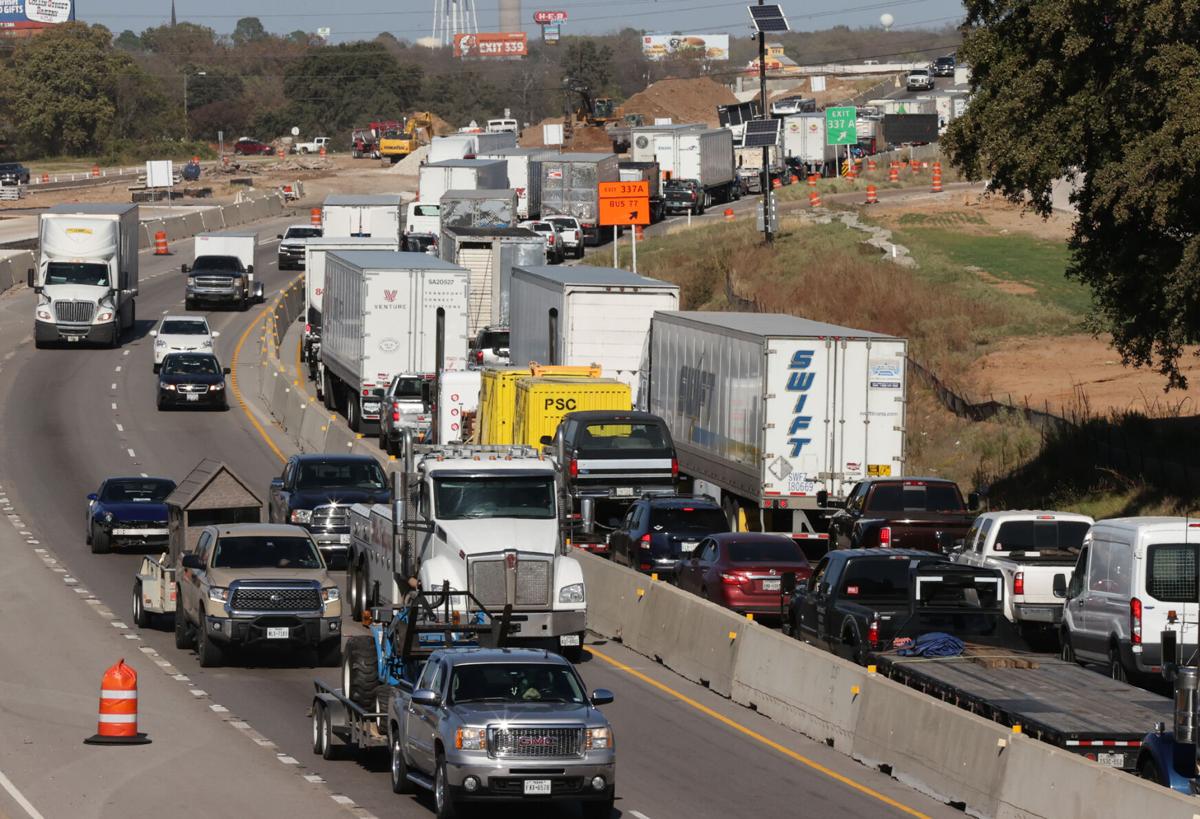
Millions of people will be traveling this week in anticipation of the Thanksgiving holiday.
But with the novel coronavirus surging across the United States once again, many of those travelers will opt for road trips rather than risk crowded airports and planes.
In fact, AAA expects 48 million Americans to drive to their Thanksgiving destinations this year, down just 4.3% from 2019. Meanwhile, only 2.4 million travelers are expected to fly, a decrease of 48% compared to last year.
Texas State Troopers to Step up Enforcement Over Thanksgiving Holiday
The National Safety Council estimates that 485 people will die on U.S. roads during this Thanksgiving holiday period, which runs from 6:00 p.m. Wednesday, November 25th to 11:59 p.m. Sunday, November 29th. Car accidents and other motor vehicle crashes could cause an additional 55,300 nonfatal, medically consulted injuries within that same time frame.
“As we prepare for the Thanksgiving holiday, we want to remind every Texan of their duty to drive defensively and help keep our roadways safe,” Steven McCraw, Director of the Texas Department of Public Safety, said recently. “The holidays may look different this year, but it is still up to each of us to obey traffic laws and make safety our top priority behind the wheel.”
DPS will step up enforcement this week and have more troopers on the road starting November 25th through November 29th. Those patrols will be targeting motorists who violate traffic safety laws, including speeding, driving intoxicated, and failing to wear a seatbelt. Texas officers handed out 59,146 warnings in the course of a similar enforcement effort last year, mostly for speeding, followed by driving without insurance and failing to wear a seatbelt.
Tips for Safe Thanksgiving Driving
Crowded roads, unpredictable weather, and distracted or fatigued drivers are just a few of the hazards motorists will face as they travel to their Thanksgiving destinations. Keep these safety tips in mind if you plan on hitting the road.
- Ensure your vehicle is properly maintained. If maintenance is not up to date, get your car and tires inspected before your trip.
- Map your route in advance, and be prepared for busy roads. If possible, consider leaving earlier or later to avoid heavy traffic.
- Have roadside assistance contact information on hand in case an incident occurs on the road.
- In case of an emergency, have a cell phone and charger available at all times. But never use the phone or text while behind the wheel.
- Don’t overload your vehicle as doing so can affect its suspension, handling, and braking capabilities. Make sure no items are in – or behind – the driver’s footwell, and avoid stacking items anywhere they could be projected forward in the event of a collision.
- Set up GPS before starting your trip and avoid eating and drinking during the drive.
- Allow plenty of time for a good night’s sleep before you set off. Take regular breaks from driving – at least 15 minutes every two hours, or let someone else share driving responsibilities, if possible.
- Make sure everyone in the vehicle wears a seatbelt. Ensure children are in the appropriate safety seats.
- Travel at a speed that enables safe stopping, and remember that a three-second following distance applies only in good conditions.
- Take steps to let truckers know when you’re passing. Keep your turn signal on longer than normal and make 100% certain the truck is clear of your vehicle before changing lanes.
- Never drive while intoxicated or under the influence of mind-altering drugs, including legal prescription and over-the-counter medications.
Traveling During a Pandemic
While the U.S. Centers for Disease Control is advising Americans not to travel and limit Thanksgiving celebrations to members of their own households, AAA’s survey suggests many people feel that keeping to annual traditions outweighs the risks associated with COVID-19.
If you are thinking about travel this holiday season, ask yourself the following questions:
- Are you, someone in your household, or someone you will be visiting at increased risk for severe COVID-19?
- Are cases high or increasing in your community or your destination?
- Does your home or destination have requirements or restrictions for travelers?
- Are hospitals in your community or your destination overwhelmed with coronavirus patients?
- During the 14 days before you’re scheduled to travel, have you or those you’re visiting had close contact with people they don’t live with?
- Do your plans include traveling by bus, train, or air, which might make staying 6 feet apart difficult?
- Are you traveling with people who don’t live with you?
If the answer to any of these questions is “yes,” consider making other plans, such as hosting a virtual gathering or delaying travel.
If you absolutely must travel this Holiday Season:
- Wear a mask in public settings, at events and gatherings, and anywhere you will be around people outside of your household.
- Avoid close contact by staying at least 6 feet apart from anyone who is not from your household.
- Wash your hands often with soap and water for at least 20 seconds, or use hand sanitizer with at least 60% alcohol.
- Avoid contact with anyone who is sick.
- Avoid touching your face mask, eyes, nose, and mouth.
Contact Our Undefeated Car Accident Lawyers for a Free Consult by Calling 1-888-603-3636 or Click Here
In addition to being Undefeated, our Car Accident Lawyers have won billions for thousands of crash victims and families in Texas, Louisiana, and across the United States, including the Largest Truck Accident Settlement in Texas for 2019.
If you or a loved one were injured or tragically killed due to another driver’s negligence, call 1-888-603-3636, use the “chat” button on our homepage, or click here to send us a confidential email through our “Contact Us” form.
Your consultation is free, and because we work on a contingency fee, you won’t owe us a dime unless we win your case.